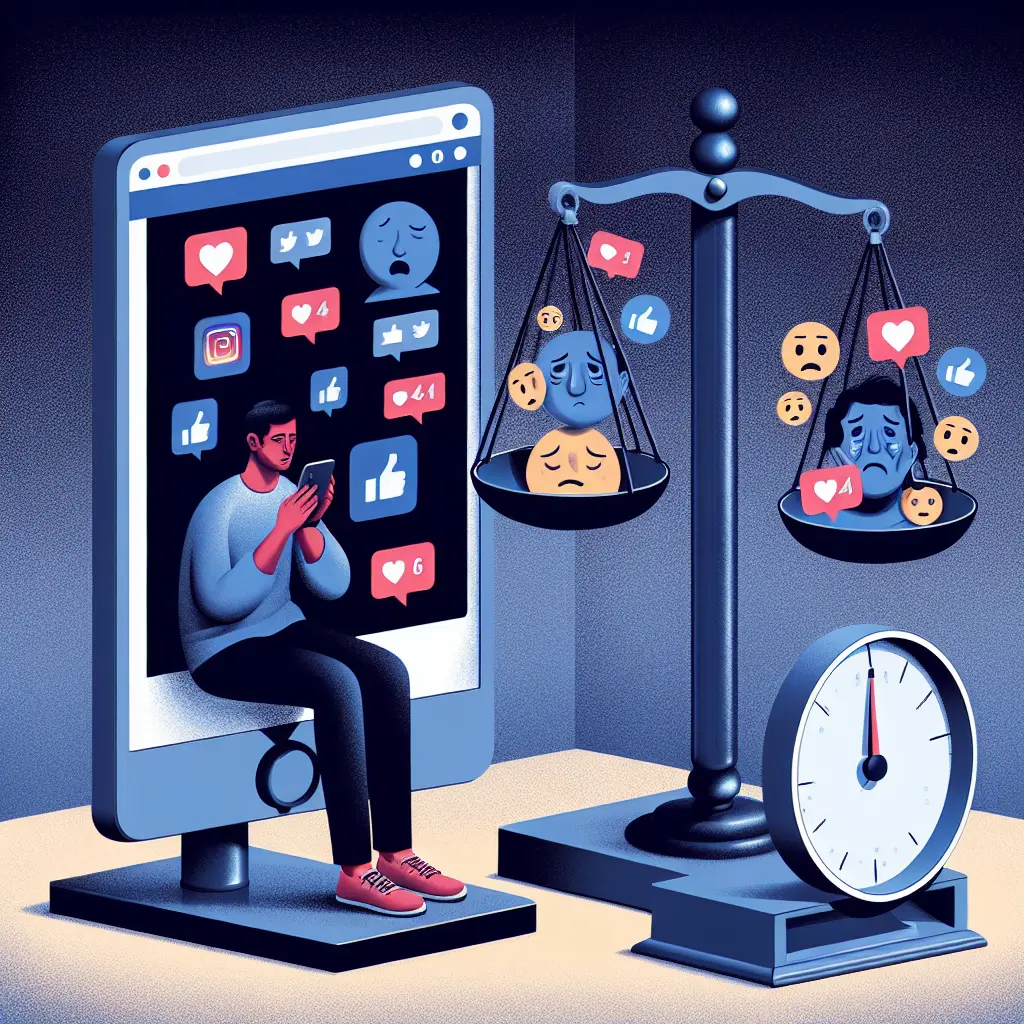
In today's hyper-connected digital world, the pursuit of social media validation profoundly influences self-esteem and mental health. Users frequently equate online approval with self-worth, creating a complex interplay between social media and self-esteem. Recent studies offer deeper insights into this dynamic, revealing challenges and potential solutions.
The Role of Social Media in Shaping Self-Worth
Social media platforms have become arenas where self-image is constantly evaluated through likes, comments, and shares. This digital self-esteem is precariously balanced on feedback from an online audience. According to a study by King's College London, teenagers who exhibit "problematic smartphone use" are more likely to suffer from anxiety and depression. This study underscores the psychological impact of social media on young users, who often internalize these interactions as reflections of their self-worth.
Social Comparison and Online Identity
The nature of social media encourages social comparison, often leading to a distorted self-image and diminished self-esteem. Platforms inundate users with curated images and stories portraying idealized versions of life. For example, the 2024 Miss USA pageant showcases diverse accomplishments yet potentially sets unrealistic benchmarks for viewers' self-comparison.
This pressure to maintain an idealized online persona can exacerbate self-esteem issues, as individuals struggle to align their real-life identity with their online identity. As noted in a psychologist's insights on cosmetic surgery, the quest for perfection can lead to unforeseen mental health struggles, demonstrating how external validation can shape internal perceptions.
Social Media Addiction and Emotional Well-Being
The relentless quest for online validation can develop into social media addiction, overshadowing real-world interactions. This dependency often results in prioritizing digital engagement over authentic self-appreciation, impacting emotional well-being. The US Senate's legislative efforts with the Kids Online Safety Act (KOSA) and the Children and Teens’ Online Privacy Protection Act (COPPA 2.0) aim to protect young users from these negative influences by making technology safer.
Navigating the Psychological Impact of Social Media
Understanding the psychological impact of social media on self-esteem is essential for developing strategies to mitigate its adverse effects. The interplay between social media and mental health is complex, requiring a multifaceted approach to address its challenges. Drawing parallels with J.D. Vance's experiences detailed in Hillbilly Elegy, we see how societal pressures can lead to unstable compromises with identity and validation, both offline and online.
This phenomenon underscores the need for critical examination of how validation-seeking behavior is ingrained in our digital interactions. As highlighted by Peter Gray's analysis, robust social science research is crucial for understanding these complex behaviors and developing effective interventions.
Strategies for Enhancing Digital Self-Esteem
To combat the negative impact of social media on self-esteem, it is imperative to adopt strategies that foster a healthier digital environment:
Promote Digital Literacy: Educating users about the constructed nature of online content can reduce social comparison. This awareness helps individuals recognize the distinction between curated online personas and reality.
Encourage Mindful Engagement: Limiting screen time and fostering real-world connections can help individuals break free from social media addiction and enhance emotional well-being.
Supportive Legislation: Laws like KOSA and COPPA 2.0 play a vital role in protecting vulnerable demographics, ensuring that platforms implement safety measures that prioritize mental health.
Personal Development Initiatives: Encouraging personal growth outside of social media can help individuals build self-worth independent of online validation. Initiatives like burnout prevention strategies for lawyers illustrate how focusing on sustainable success can enhance self-esteem across various professions.
Conclusion: Cultivating Healthier Digital Interactions
In our interconnected world, social media's impact on self-esteem is undeniable. It intricately weaves online validation with self-worth, leading many to equate digital approval with personal value. Platforms drive social comparison, distorting self-image and fueling addiction. Such dynamics are especially concerning among young users, who face heightened anxiety and depression from these pressures.
Strategies to counteract these effects are crucial. Promoting digital literacy helps users discern reality from curated content, reducing harmful comparisons. Mindful engagement can break the cycle of addiction, fostering genuine connections that enhance emotional well-being. Supportive legislation, like KOSA and COPPA 2.0, is vital in creating safer online spaces for vulnerable demographics. Encouraging personal growth beyond digital confines builds intrinsic self-worth, offering a sustainable path to enhanced self-esteem.
As we navigate this digital age, it's essential to prioritize mental health over online validation. By fostering environments that support emotional well-being, we can mitigate the adverse effects of social media. I invite you to reflect on your digital interactions and consider how they shape your self-esteem. Share your experiences or insights in the comments below—your journey could inspire others to seek healthier relationships with social media.
Thank you for exploring this topic with me. Let's continue fostering healthier connections both online and offline.
Author: Ethan Sinclair